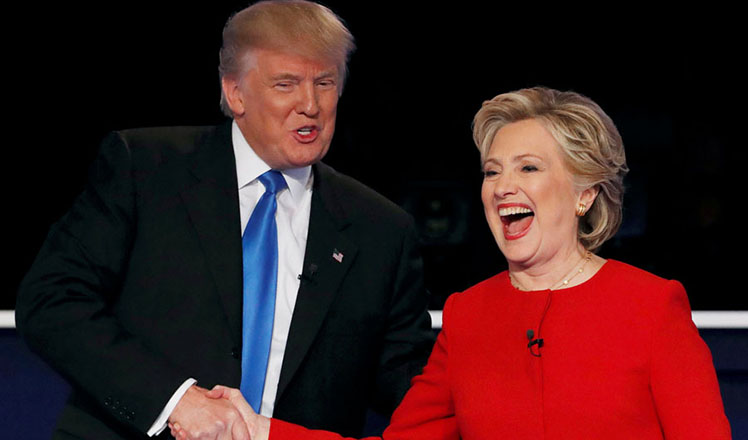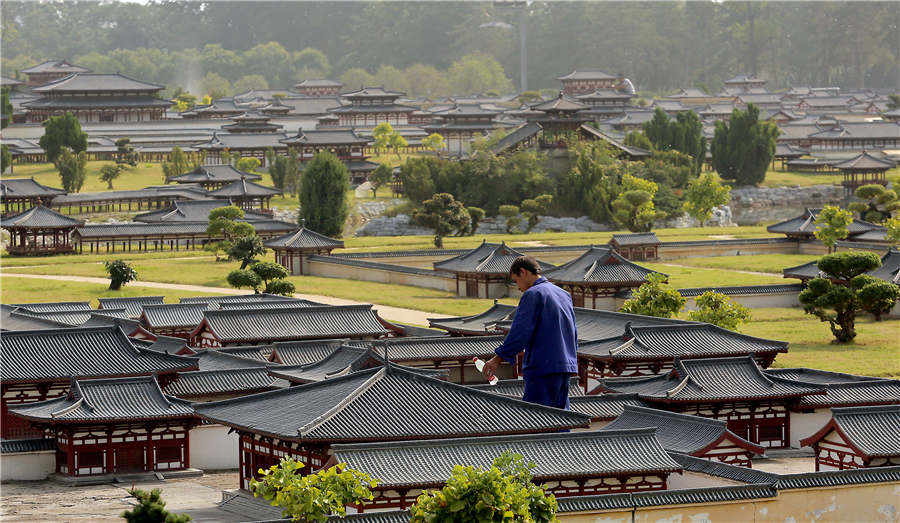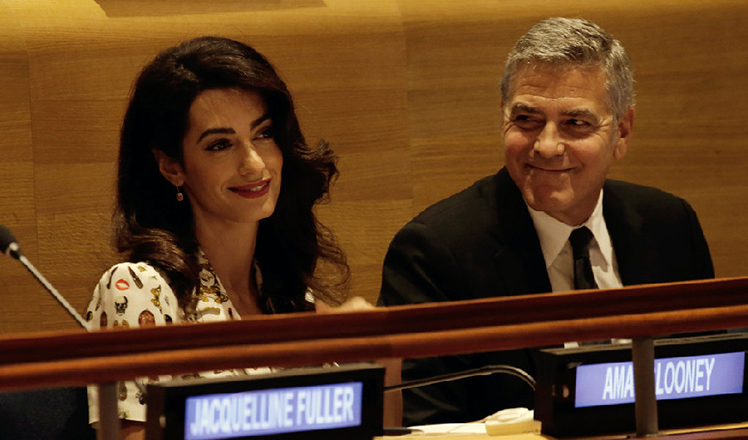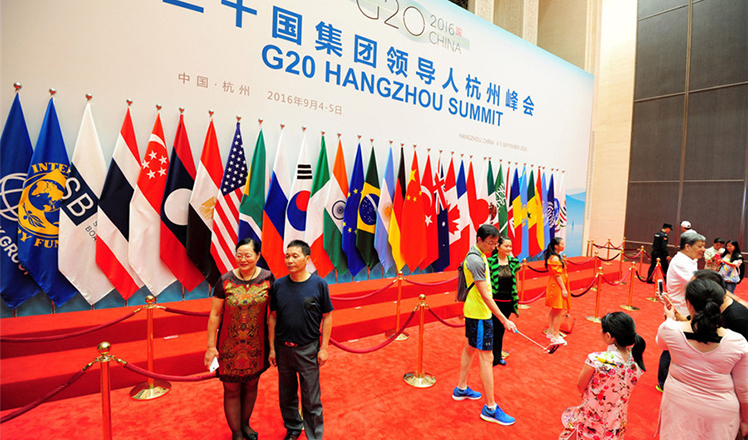US policy on China needs update: experts
Updated: 2016-09-27 10:42
By Chen Weihua in Washington(China Daily USA)
|
||||||||
For James Steinberg, the US deputy secretary of state from 2009 to 2011, the biggest surprise of the ongoing US presidential election is the lack of debate of US policy towards China.
He believes that a core consensus of the US policy is under increasing attack.
He was referring to the consensus that US and China have a shared interest and shared stake in the prosperity of China. Both countries will stand to lose from a rivalry. And that the differences that do exist in their political and economic systems, while serious, can be managed constructively.
In a talk on Monday afternoon, Steinberg described the consensus as not only benefiting the people of China and the US, but the rest of the region, including US allies.
While some in the US argue that the deep economic interdependence between the two nations and their many shared interests will lead to a more collaborative relationship in the coming decades, some still believe a conflict between a rising power and established power is inevitable.
In the 2014 book Strategic Reassurance and Resolve: US-China Relations in the Twenty-First Century, Steinberg and coauthor, Michael O'Hanlon, a senior fellow at the Brookings Institution, contend that this pessimistic scenario can be confidently avoided only if China and the US adopt deliberate policies designed to address the security dilemma that besets the relationship between a rising and an established power.
They propose a set of policy proposals to achieve a sustainable, relatively cooperative relationship between the two nations, based on the concept of providing mutual strategic reassurance in such key areas as nuclear weapons and missile defense, space and cyber operations, and military basing and deployments, while also demonstrating strategic resolve to protect vital national interests.
While Steinberg did not comment on how US policy towards China could be improved, former US Ambassador to China Stapleton Roy said the US needs to adjust its assumptions regarding the region.
In Roy's views, none of the changes in East Asia have been integrated into the US thinking. He warned that there is enormous danger in basing US policies on assumptions that are outdated.
The US pivot to Asia strategy assumes a stable Europe and a US retreat from the Middle East, but that has not been the case, according to Roy.
"When I look at the Middle East and Europe, I don't see good outcomes. But East Asia has the potential to do well if key relations and friction points are managed properly.
Economically, East Asia still outperforms the rest of the world," Roy said.
"Missteps in East Asia could have very serious consequences," he said, referring to hot spot issues such as North Korea and South China Sea.
Roy said East Asia needs sustained and well informed policy attention from whatever US administration emerges from November's election. "But more than attention is required for a successful policy approach in East Asia," he said.
Roy said East Asia needs sustained and well informed policy attention from whatever US administration emerges from November's election. "But more than attention is required for a successful policy approach in East Asia," he said.
Roy believes it's too hard to predict the US foreign policy in the next administration now because of the stark differences of the two candidates. While reasonable assumption about Hillary Clinton's policy could be made, an assumption about Donald Trump's policy is hard, according to Roy.
"So it's not the best time to make predictions for the new administration," he said.
Roy, once a US diplomat in the Soviet Union during the Cold War, criticized the NATO expansion along the Russian border for unnecessarily raising tensions. He also described China's position on the South China Sea as more reasonable than some of the neighbors, saying that China is the only country involved in the maritime territory that actually agreed to negotiate the disputes.
"The US has to be careful, we are an outside party, and negotiations on Code of Conduct are between ASEAN countries and China. The US is not a party to these negotiations, and we shouldn't try to force our way in," said Roy, also former US ambassador to Singapore.
Teng Jianqun, a research fellow on US studies at the China Institute of International Studies, said on Monday that the key issue between China and the US is still a lack of trust.
"The key issue is that China and the US should have a fresh angle looking at the other," he said.
Amitai Etzioni, a professor of international relations at the George Washington University who moderated the talk by Steinberg, argued in his testimony before the US Congress on Sept 22 that the US and China have many shared and complementary interests and very few real reasons for conflict.
Etzioni told lawmakers that whenever a new power arises and the established super power does not make some accommodations with the rising power, war will ensue. He proposed a grand bargain between China and the US, including everything from nuclear nonproliferation and cybersecurity to South China Sea and Taiwan.
chenweihua@chinadailyusa.com

 Clinton, Trump go head to head in high stakes presidential debate
Clinton, Trump go head to head in high stakes presidential debate
 Miniature replica of Daming Palace shows craftsmanship
Miniature replica of Daming Palace shows craftsmanship
 Elderly man creates map of China with colorful rice
Elderly man creates map of China with colorful rice
 Students 'die' to get closer to each other in Hangzhou
Students 'die' to get closer to each other in Hangzhou
 Classic autos debut at Beijing Design Week
Classic autos debut at Beijing Design Week
 World in photos: Sept 19 - 25
World in photos: Sept 19 - 25
 Milan Fashion Week: Dolce & Gabbana Spring/Summer 2017
Milan Fashion Week: Dolce & Gabbana Spring/Summer 2017
 Hangzhou opens G20 summit arena to general public
Hangzhou opens G20 summit arena to general public
Most Viewed
Editor's Picks

|

|

|

|

|

|
Today's Top News
Trump outlines anti-terror plan, proposing extreme vetting for immigrants
Phelps puts spotlight on cupping
US launches airstrikes against IS targets in Libya's Sirte
Ministry slams US-Korean THAAD deployment
Two police officers shot at protest in Dallas
Abe's blame game reveals his policies failing to get results
Ending wildlife trafficking must be policy priority in Asia
Effects of supply-side reform take time to be seen
US Weekly

|

|







